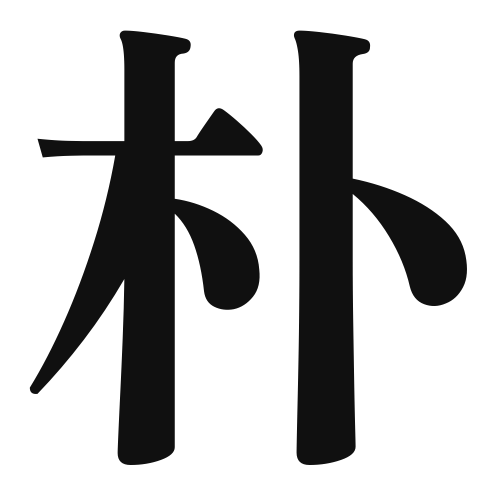1. Overview of Meaning
The kanji “朴” (pronounced “boku” or “paku”) generally means “simple” or “plain.” It can also refer to the “Chinese parasol tree,” which is known for its straightforward and unadorned nature.
2. Formation and Radical
The kanji “朴” is a phonetic-ideographic character (形声文字), which means it combines both a meaning component and a phonetic component. The left side of the character is the radical “木” (tree), indicating its connection to nature, while the right side suggests its pronunciation.
The radical for “朴” is 木, which means “tree” or “wood.” This radical is commonly found in kanji related to trees and plants.
3. Examples of Usage
Common words and phrases that include “朴” are:
- 朴素 (bokusō) – simplicity, plainness
- 朴訥 (boku-tatsu) – simplicity and honesty
Example sentence in daily conversation:
「彼の服装はとても朴素です。」(Kare no fukusō wa totemo bokusō desu.) – “His outfit is very simple.”
4. Synonyms and Antonyms
Similar kanji with related meanings include:
- 簡素 (kansō) – simplicity, but with a nuance of being unadorned or minimalistic.
- 素朴 (soboku) – naive or unsophisticated, often with a positive connotation of being genuine.
Antonyms include:
- 華やか (hanayaka) – glamorous or showy, representing the opposite of simplicity.
5. Cultural and Historical Background
The kanji “朴” has connections to Japanese culture, particularly in the appreciation of simplicity and natural beauty, which is a recurring theme in traditional Japanese aesthetics.
Proverbs and idiomatic expressions that reflect this concept include:
- 「質素が美しい」(Shisso ga utsukushii) – “Simplicity is beautiful.”
This highlights the cultural value placed on modesty and straightforwardness in various aspects of life.
